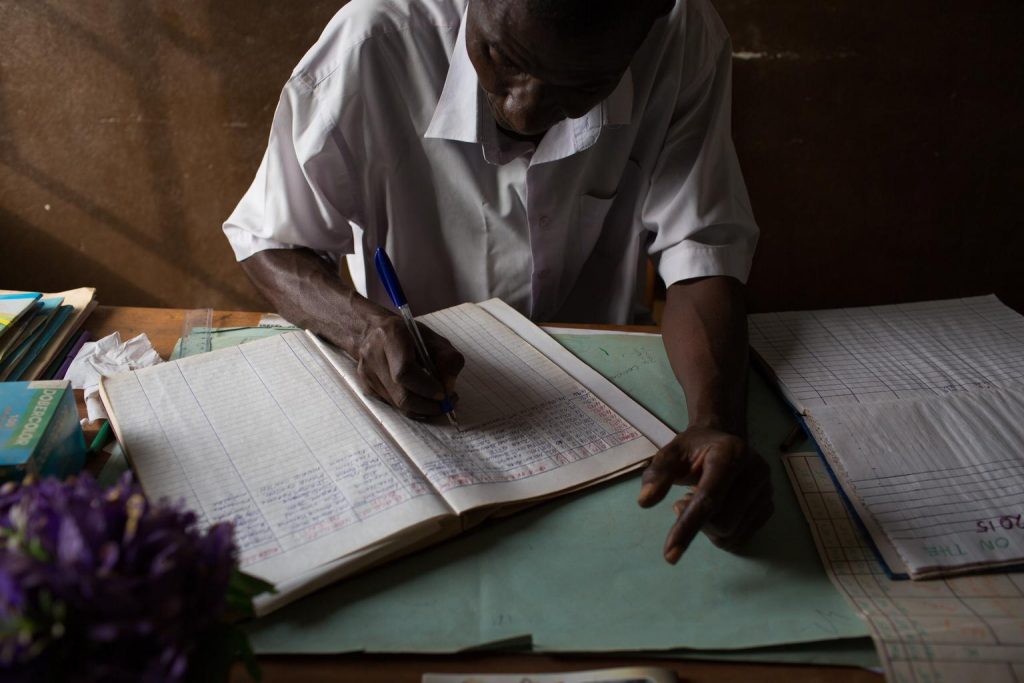From the foreword by Co-Chairs H.E. Dr Gro Harlem Brundtland and Mr Elhadj As Sy: “For its first report, the Global Preparedness Monitoring Board reviewed recommendations from previous high-level panels and commissions following the 2009 H1N1 influenza pandemic and the 2014-2016 Ebola outbreak, along with its own commissioned reports and other data. The result is a snapshot of where the world stands in its ability to prevent and contain a global health threat. Many of the recommendations reviewed were poorly implemented, or not implemented at all, and serious gaps persist. For too long, we have allowed a cycle of panic and neglect when it comes to pandemics: we ramp up efforts when there is a serious threat, then quickly forget about them when the threat subsides. It is well past time to act.”
Background report
A World at Risk: Annual Report on Global Preparedness for Health Emergencies
Topics
Health
On 14 April, the principal of St. James School registers students on their first day back to class, in Grafton, a suburb of Freetown, the capital.
In April 2015 in Sierra Leone, around 1.8 million children prepared to return to school after an eight-month break due to the outbreak of Ebola virus disease (EVD). The Government of Sierra Leone, UNICEF and partners worked to ensure that children were safe, including by implementing temperature checks and handwashing protocols. To support the return to school, UNICEF facilitated the training of 9,000 teachers in EVD prevention, safety guidelines and psychosocial support. UNICEF is also supplying 24,300 handwashing stations, enough for three in every school, as well as cleaning equipment to prepare school buildings. Cases of EVD continue to be reported in Sierra Leone, but are well down from levels seen at the end of 2014.
Related content
Tools
Mapping community engagement tools for vaccination in LMIC settings
This resource, which maps and characterises community engagement tools used for vaccination in low and middle income settings, is the results of a study from the Pulse project.
Université de Genève
2025
Question Bank
Tools
Viral haemorrhagic fevers question bank
This Question Bank is relevant to outbreaks where person-to-person transmission has been identified as a significant contributor to the spread of the outbreak and where patient experiences of care must be understood for a community-centred response.
SSHAP
2024
Tools
Rapid qualitative assessment training – 10 modules in English, French, Spanish and Portuguese
This training aims to contribute to more effective and community-centred responses by strengthening systems for the utilisation of community data in emergency response by ministries of health, government and partners.
Collective Service
2024
Briefing
Post-trauma impacts in conflict-affected communities in northern Nigeria
This Key Considerations brief compares the biomedical framing of post-traumatic stress disorder with the social science understanding of the drivers of and possible solutions for mental health impacts of trauma.
West Africa Hub
SSHAP
2024


